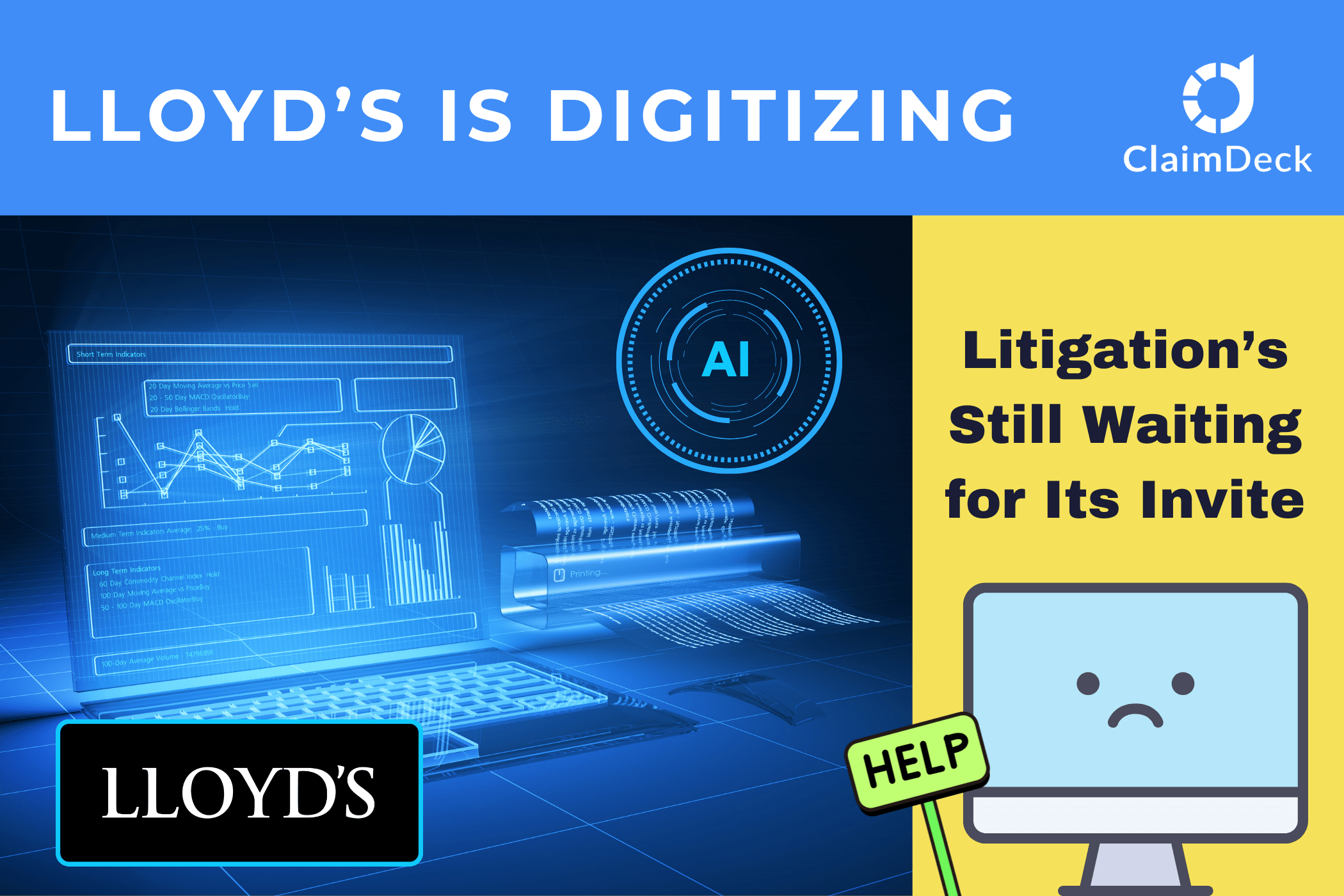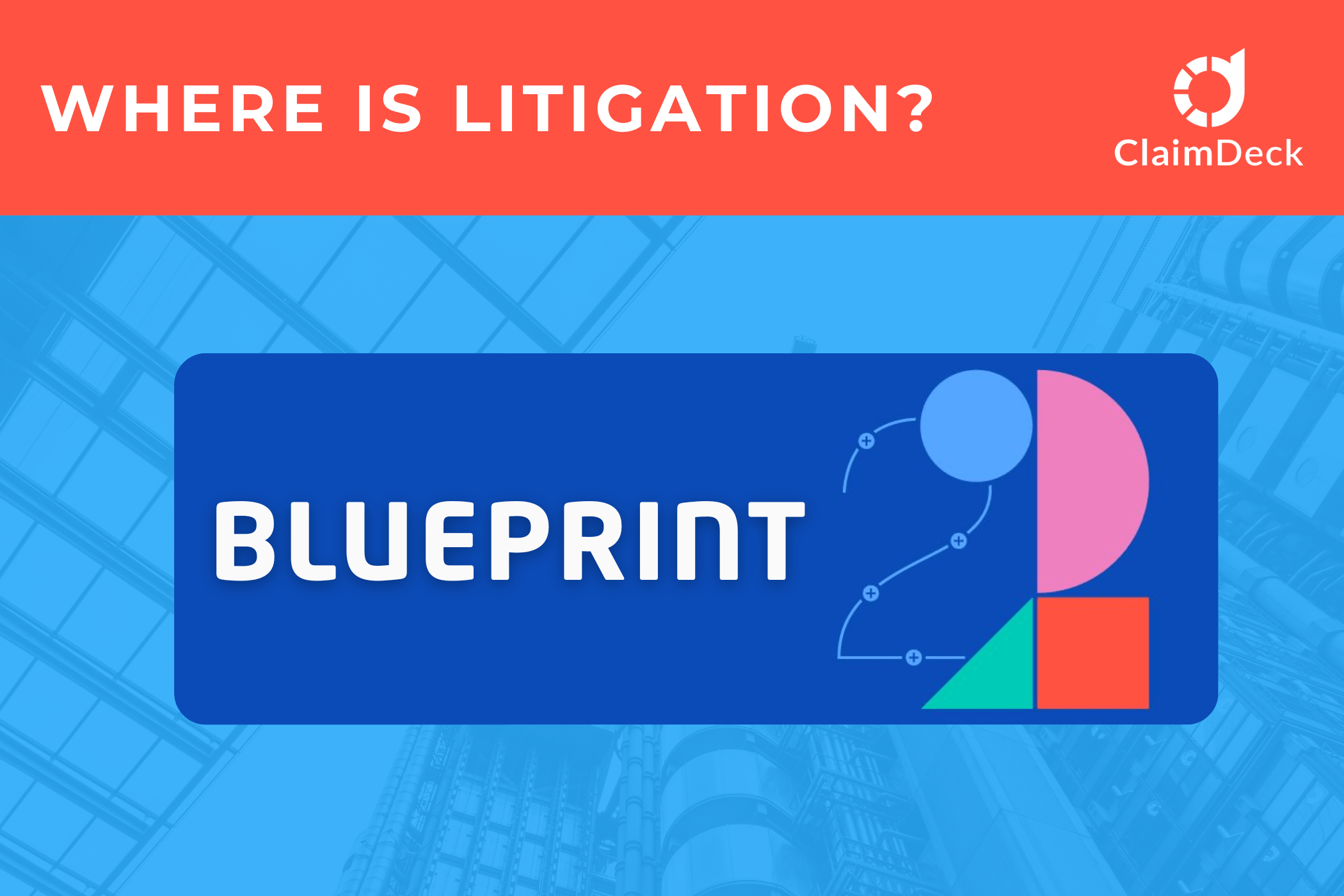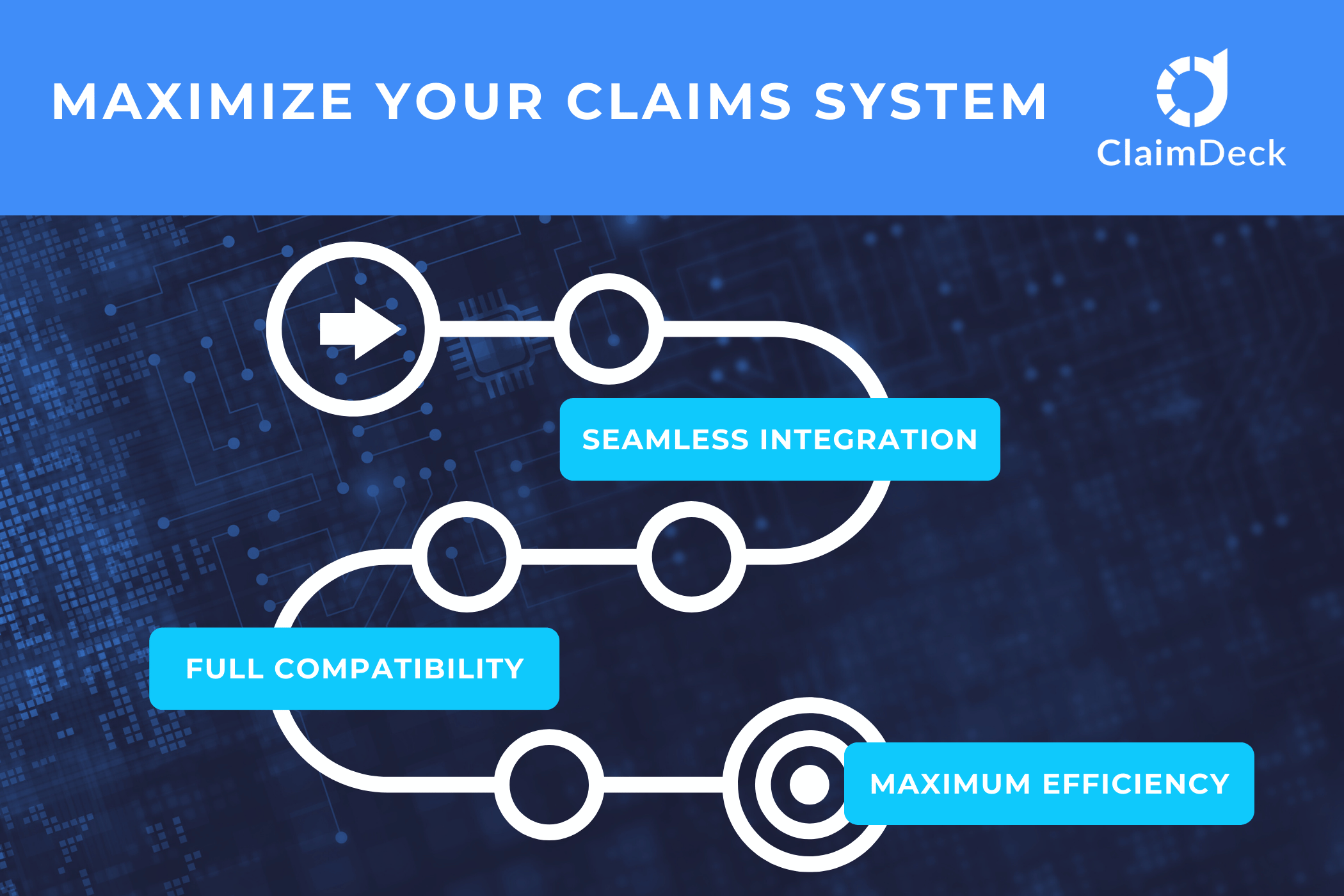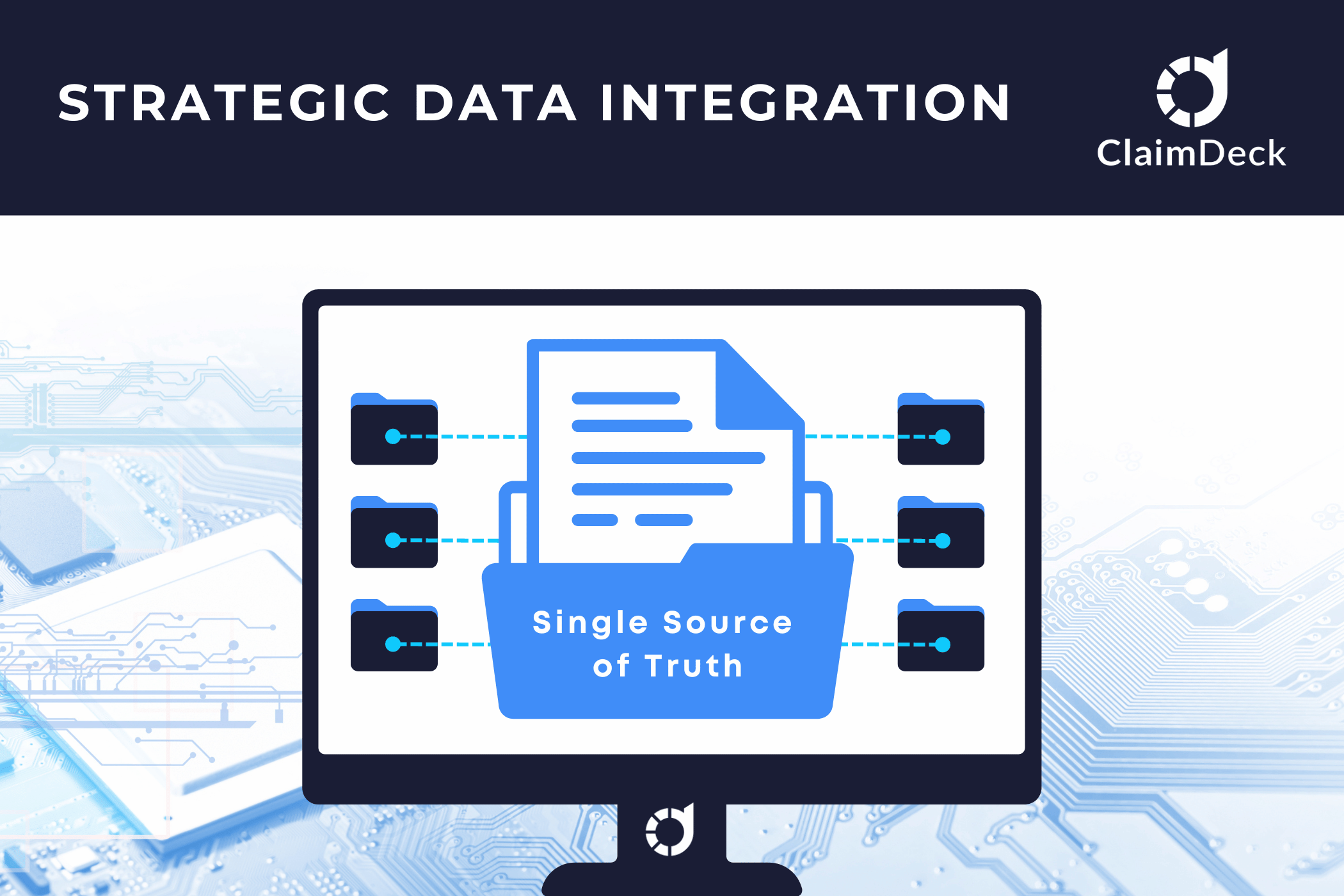Thought Leadership
Smarter Claims, Smarter Costs: The Power of ClaimDeck’s Per-Claim Pricing
Discover how ClaimDeck’s per-claim pricing structure empowers insurers with accurate cost allocation, improved claims management, and enhanced regulatory compliance. Learn how this innovative approach drives profitability and competitiveness in the insurance industry.
The AI Advantage: Transforming Insurance Claims for the Future
Discover how AI and generative tools are transforming insurance claims management. Learn how ClaimDeck's data-driven software helps insurers streamline workflows, improve decision-making, and prepare for the future of claims management.
Enhancement of Claims Management —A Comprehensive Strategic Plan
Discover how to transform your claims department with advanced litigation management technology. Our comprehensive strategic plan for Chief Claims Officers outlines how to enhance technology adoption, data strategy, analytics, and AI integration. Learn how unique structured data insights from litigation technology can revolutionize claims processes and future-proof your operations.
The 2024 CLM Defense Counsel Study Report of Findings
Read and download The 2024 CLM Defense Counsel Study Report of Findings here!
The Power of Data-Driven Insights in Shaping Tomorrow's Legal Services
Addressing the rising costs of litigated claims is imperative in the evolving risk industry. According to the 2023 CLM Litigation Management Study Report, 76% of participants reported an increase in their average cost per litigated claim over the last three years. To combat this trend while maintaining quality legal services, efficiency is key. ClaimDeck, a state-of-the-art litigation management system, streamlines processes, standardizes information flow, and enhances operational efficiency, enabling both legal firms and carriers to reduce costs and improve claim resolution outcomes.




















